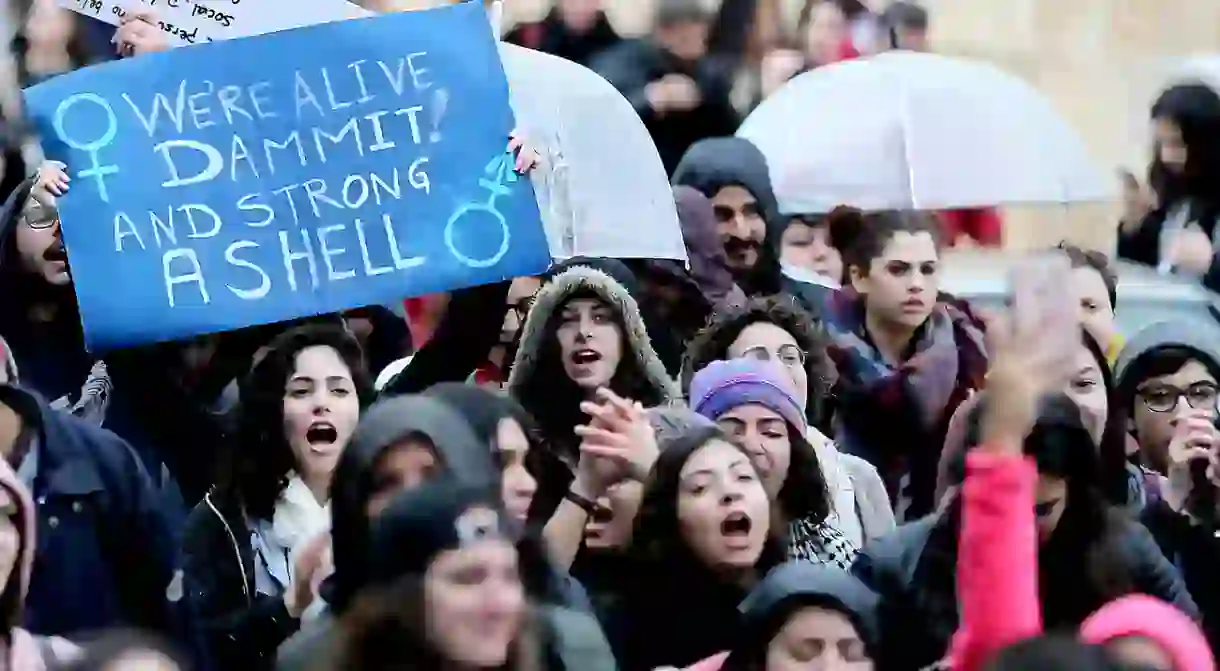The 'Mesh Basita' Campaign Says No to Sexual Harassment in Lebanon

There has been a large amount of change in Lebanon recently. From women’s rights to the LGBTQ community making strides, the country is at a turning point when it comes to locals’ initiative and desire for social change. One of the current movements is Mesh Basita, which literally translates to “not simple” but means “not okay/acceptable” and is directly related to the issue of sexual harassment in Lebanon.
The conception of Mesh Basita is far from random, or impulsive. The concept falls under the “Knowledge is Power” project started by the Olayan School of Business at the American University in Beirut. The aim of the project is initiating activity in gender studies and statistics concerning harassment, civil society and legislative issues. The KiP projects’ intention is to provide studies and enrich a field which is missing reliable statistical data and study. It is a community of researchers, governmental agents and interested NGO’s, and part of the same civil society.

This community of dedicated individuals found that the issue of sexual harassment is ever present and is a topic which needed to be tackled in one of their projects. The initiative aims to shed light on the severity of sexual harassment in a Lebanese context and especially work space.
The culture of criminalizing the victim, misunderstanding and stigma surrounds all aspects of overt sexual behavior in local society. To some, the notion of a word or gesture being sexual harassment in non-existent. Consequently, women face the bulk of verbal sexual harassment in places like streets and professional institutions. This makes the issue of sexual harassment directly related to gender equality in society as an increasing amount of Lebanese women are standing up to tell their stories despite the stigma surrounding their issues.

To the KiP project, the non-existence of legislation to protect against sexual harassment is one of the key factors which contributes to victim silence. There is no law or article which delves into an immediate issue in Lebanon. To many, the law shapes society and a lack of an article is a lack of the value. As such the project is calling for legislative reform and education on what remains a taboo issue.
How did the KiP and Mesh Basita reach the public? It was through #Mesh_Basita. The locals were invited to share photos, videos and captions that show that sexual harassment is not acceptable. The hashtag was a step towards normalizing the issue for the public as it was open to everyone to share. Moreover, the KiP project has come up with several campaigns which shed light on their study and offer educational value for individuals who might not see how their actions affect others. Their recent video shows, in a couple of seconds, the plight of women from school and up until they get to the workplace. The campaign shows how the disregard or normalization of harassment leads to the escalation of such behaviors.

In a society where women are shamed for overt sexual behavior, it seems an impossible feat for a woman to report sexual harassment. Accusations of her inviting the offender, dressing or acting inappropriately, are what a woman hears when she attempts to obtain her rights. Religions, civil and social institutions all support each other in the haze of ignorance surrounding sexuality and violence. However in reality no religion, law or society would permit such victimization. So join the movement and share #Mesh_Basita to help victims get their rights.













